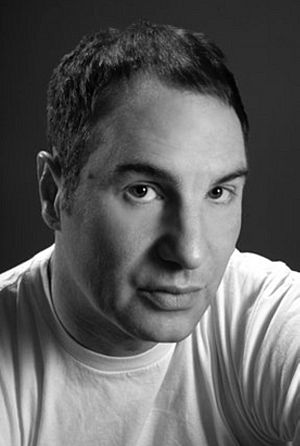Gregory Scofield facts for kids
Quick facts for kids
Gregory Scofield
|
|
|---|---|

Gregory Scofield
|
|
| Born | July 20, 1966 Maple Ridge, British Columbia |
| Occupation | poet |
| Nationality | Canadian |
| Period | 1990s-present |
| Notable works | The Gathering: Stones for the Medicine Wheel, Native Canadiana: Songs from the Urban Rez, Thunder Through My Veins |
Gregory Scofield was born on July 20, 1966, in Maple Ridge, British Columbia. He is a Canadian Métis poet, artist, and writer. He is known for his beadwork art and his non-fiction writing.
Scofield studied at the Gabriel Dumont Institute. His writing and performances often use Cree storytelling traditions. He has also written two books about Métis flower-beadwork. These books were created for the Gabriel Dumont Institute.
Contents
About Gregory Scofield
Scofield is a Red River Métis person. His family has both Cree and European roots. His ancestors were involved in the North American fur trade. They also lived in Métis communities like Kinesota, Manitoba.
He speaks the Cree language and uses it in his poems. Scofield wrote about his early life in his 1999 memoir, Thunder Through My Veins. He faced challenges growing up.
Scofield's Career Path
Gregory Scofield has published eight books of poetry. He also wrote a non-fiction memoir. He has been a writer-in-residence at universities. These include Memorial University of Newfoundland and the University of Winnipeg.
He also worked as a social worker with young people in Vancouver. Scofield has taught literature at Brandon University and the Emily Carr Institute of Art and Design. He is currently a professor of English literature at Laurentian University.
In 2007, a film was made about him. It was called Singing Home the Bones: A Poet Becomes Himself.
Poetry and Community Work
In 1998, a sad event happened in Scofield's family. This event has influenced his recent poetry. He often shares stories about missing or murdered Indigenous women. He does this to raise awareness.
Scofield sees himself as a "community worker." His writing often shows his different identities. He once felt ashamed of his Métis background. This was because the Canadian school system did not always teach Métis history positively. He wanted to have a pure Cree identity. His own grandfather had hidden his Cree/Métis identity due to shame.
Scofield learned to be proud of his Métis heritage. This happened after he attended a Métis cultural festival. It is called "Back to Batoche Days." He believes that embracing all parts of his identity helps him in his community work.
Awards and Recognition
Scofield has received several awards for his writing.
- In 1994, he won the Dorothy Livesay Poetry Prize. This was for his first poetry book, The Gathering: Stones for the Medicine Wheel.
- In 2013, he received the Queen Elizabeth II Diamond Jubilee Medal. Many Canadians were given this medal.
- In 2016, Scofield won the Latner Writers' Trust Poetry Prize. This award recognized his entire body of work.
Published Works
- The Gathering: Stones for the Medicine Wheel (1993)
- Native Canadiana: Songs from the Urban Rez (1996)
- Love Medicine and One Song (1997)
- I Knew Two Métis Women (1999)
- Thunder Through My Veins (1999) memoir
- Singing Home the Bones (2005)
- kipocihkân: Poems New & Selected (2009)
- Louis: The Heretic Poems (2011)
- Witness, I Am (2016)
 | James Van Der Zee |
 | Alma Thomas |
 | Ellis Wilson |
 | Margaret Taylor-Burroughs |

